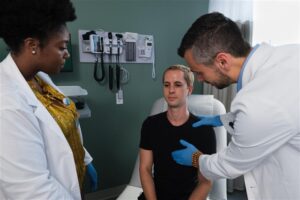FAWE Kenya Partners with Kiambu County to Combat Underage Pregnancies and Reinstate Girls in School

The Forum for African Women Educationalists (FAWE) Kenya Chapter has joined forces with Kiambu County in a concerted effort to trace underage girls who dropped out of school due to early pregnancy, with the aim of reintegrating them into the educational system.
FAWE, a pan-African Non-Governmental Organisation dedicated to advancing girls’ and women’s education, operates through 34 National Chapters in sub-Saharan Africa. The organization’s core mission is to promote access to education, retention, and the enhancement of its quality for girls across the continent.
At a recent workshop convened at a Nairobi hotel under the auspices of Imarisha Msichana, county officials, National Government Administration Officers (NGAOs), and Community Health Promoters (CHPs) came together to address the pressing issue. Disturbingly, it was revealed that numerous girls had their education disrupted due to unwanted pregnancies, with some becoming mothers as young as 9 years old.
FAWE and experts emphasized that girls who become pregnant should not be denied the opportunity to register for or sit national exams. They stressed that it was the responsibility of school management to ensure these girls could continue their education.
A Ministry of Health official presented a sobering assessment of the situation across all sub-counties of Kiambu, underscoring the need for urgent and unified action to reverse the trend.
CHPs were assigned the crucial task of compiling up-to-date data on cases of girls who had dropped out of school due to unwanted pregnancies. Given their close ties to grassroots communities, they were deemed best suited for this role.
FAWE aims to identify and encourage all underage girls who become pregnant, especially those in rural villages and informal settlements, to return to school while seeking justice against perpetrators.
The process, albeit slow and laborious, will leverage NGAOs at the lowest levels of administration, including chiefs, sub-chiefs, Nyumba Kumi, and village elders, who possess intimate knowledge of local households.
Various factors contributing to underage pregnancies were highlighted, including poverty, peer pressure, social media influence, child labor, and inadequate parenting.
Data collected by CHPs will be instrumental in securing much-needed resources from local and international partners to support this vital initiative. Pauline Masese, Coordinator of Imarisha Msichana, emphasized the importance of this data in soliciting support from partners like the Mastercard Foundation.
The Imarisha Msichana initiative, aimed at addressing teen pregnancy, is being replicated in other counties grappling with similar challenges.
Without comprehensive data, FAWE and its partners acknowledge the difficulty in mobilizing support to address this critical issue affecting the education and well-being of young girls in Kenya.





